Middle School Counselor
 Welcome to my Middle School Counseling Page!
Welcome to my Middle School Counseling Page!
A Little About Me!
I can hardly believe I am in my 10th year as a School Counselor! I first realized I wanted to be a school counselor while earning my bachelor’s degree in Psychology at the University of North Dakota. I found that helping kids was a true passion of mine as I volunteered at the local schools and worked at a mental health center in Grand Forks. I completed my Master of Science Counseling degree at South Dakota State University. I fell in love with the line of work years ago and I am loving the role of being a school counselor!
I view school counseling as holistic and solution-focused. Every problem has a solution. Lots of changes happen in middle school developmentally, emotionally, and scholastically. I am here to help you through each of those steps along the way.
Most importantly, I look forward to working with each student in their personal, social, and academic areas as they develop throughout the school year. I can provide you and your student with many resources and benefits; please do not hesitate to contact me with any questions or concerns.
Pipestone Area Schools has a zero-tolerance policy on bullying. Our district trains all staff members to ensure they have the resources and knowledge/understanding in order to work with a bully or students who are being bullied. Our staff does an exceptional job identifying students who are victims of bullying and also identifying a bully.
As the school counselor, I meet with students who may be experiencing bullying or acting as a bully. Along with meeting with students individually, while working through a bullying situation, I also do small groups with the students and particular lessons in the classroom regarding bullying.
Bullying Terms:
Bullying: An unwanted, aggressive behavior among school-aged children that involves a real or perceived power imbalance. The behavior is repeated or has the potential to be repeated, over time. Both kids who are bullied and who bully others may have serious, lasting problems. (stopbullying.gov)
Bystander: Someone who sees bullying behavior
Victim: Someone who is hurt by bullying behavior repeatedly
Bully: Someone with greater power who hurts someone with less power repeatedly
Types of Bullying:
Verbal: Teasing, Name-Calling, Inappropriate sexual comments, Taunting, Threatening to cause harm
Social Bullying: Leaving someone out on purpose, Telling other children not be friends with someone, Spreading rumors
Physical Bullying: Hitting, Kicking, Spitting, Tripping, Pushing, Taking or breaking someone’s things, Making mean or rude hand gestures
Please always error on the side of caution and report any type of bullying behavior!

Counseling Services
Individual Counseling
Individual counseling consists of working with the student’s immediate or near-future concerns. Individual counseling can encompass a wide variety of issues including personal, social, and academic concerns. Individual counseling is a one-on-one discussion between the counselor and the student.
Group Counseling
Group counseling consists of multiple students facing a similar concern. The group usually consists of 3-8 students with a counselor and sometimes a co-leader. The purpose of group counseling is for the group to work together and work toward a common goal. For example, a group may be formed for a group of students who are struggling with the divorce of their parents. The idea of group counseling is for students to realize they are not the only one experiencing these problems.
Classroom Guidance Counseling
Classroom guidance counseling consists of the counselor going into the classroom setting and addressing a wide variety of topics such as bullying, conflict resolution, social skills, career exploration, organizational skills, and many more. The purpose of classroom guidance is to engage all the students in a common topic where the students in turn can all work together.
Other Counseling Services may Include
**Psychoeducation
**Consultation & Collaboration
**Referrals to Community Resources
**IEP Teams
**Crisis Management
What is said in a counseling session remains confidential unless:
1. You are hurting yourself.
2. You are hurting someone.
3. Someone is hurting you.
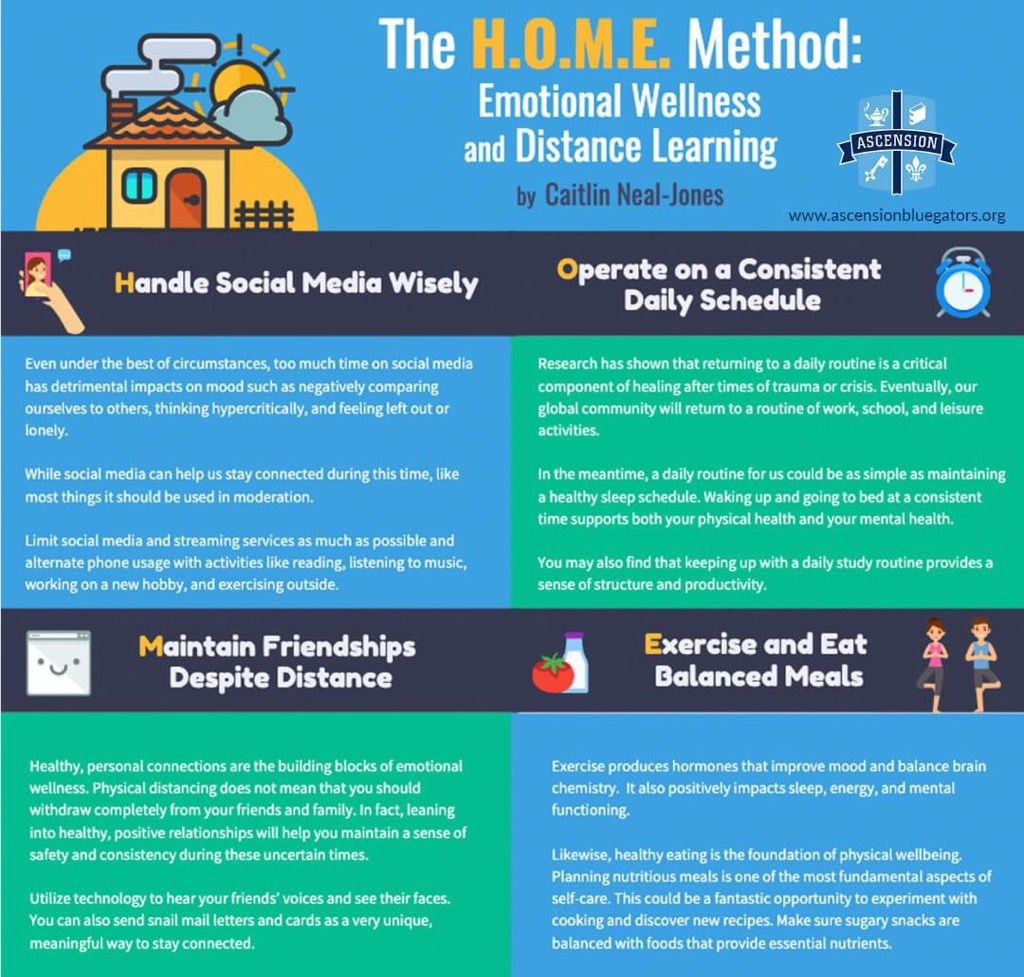
Getting Organized!
Being organized makes your day run smoother and it saves you time. It also helps you feel like you are in control and on top of things.
Being organized isn’t hard, but it’s a skill that needs to be developed and practiced.
Being organized will not only make you a better student, it will help you succeed in your career and life.
Use a Student Planner
Using a planner every day is a great way to stay organized.
Use your planner to record the following information:
Important Dates: Write in the beginning and ending date of each term, exam dates, special events, and the days your school will be closed for holidays and vacations.
Daily Assignments, Quizzes, and Tests: Write each assignment under the date it’s assigned. Beside each assignment, write the date it’s due. Check off each assignment when it’s completed. Write in all quiz and test dates.
Projects and Papers: Break large assignments down into smaller more manageable parts. For example, if you have a paper due on Friday you might give yourself these four assignments:
Activities and Appointments: Write in practices, appointments, social activities, and anything else you need to remember.
Organization Tips:
Study Area: Your study area should be comfortable, quiet, well-lit, and have a surface for writing. Equip your study area with everything you need (paper, pencils, pens, calculator, etc.)
Pocket Folders: Have a different colored pocket folder for each class. Use these folders for handouts, returned papers, and homework assignments. When a folder starts to get full, throw out anything you don’t need, and put any papers you want to keep (review sheets, returned tests, etc.) in a home file.
Notebooks: Use a three-ring notebook with tabs for different classes. Three-ring notebooks work well because you can easily insert handouts, and if you’re absent, you can copy a classmate’s notes and insert them where they belong. Keep a three-hole punch in your notebook so you can put handouts in with your notes as soon as you get them.
Phone Numbers: Have a phone number for at least one person in each class. If you miss a class or have a question about an assignment, you’ll then have someone to call.
Develop Routines: Have a morning routine that gets your day off to a good start. Get up early enough to eat a good breakfast and not be hurried. Before you go to bed, get everything ready for the next day. Put your book bag and anything else you will need in the same place each night. If there’s something you need to remember in the morning, leave yourself a note.
Create a Study Plan: Know when you study best and create a study plan that works for you. Identify anything that could interrupt your study plan and figure out how you can eliminate or avoid it.
Eliminate Clutter: Put away or get rid of the things you don’t need.
Use a Monthly Wall Calendar: A monthly wall calendar will help you keep track of major events, project deadlines, vacations, etc.
Organize and Save Computer Work: Make sure that you save your work often. Regularly back up, clean up, and organize your computer files.
Dear Student,
Middle school is a wonderful, exciting, and new adventure! As a middle school student, you will have more freedom, more independence, and fun. This page will help you to be successful in school.
KNOW WHAT TO EXPECT
![]() New teachers and classmates: For all students, it means new classes, new teachers, and new classmates.
New teachers and classmates: For all students, it means new classes, new teachers, and new classmates.
![]() New things to adjust to: Lockers, lunch periods, and changing classes are just a few of the new things middle school students often have to adjust to.
New things to adjust to: Lockers, lunch periods, and changing classes are just a few of the new things middle school students often have to adjust to.
![]() More activities and athletic programs: middle school students have a variety of activities, clubs, and athletic programs to choose from.
More activities and athletic programs: middle school students have a variety of activities, clubs, and athletic programs to choose from.
![]() More independence and more responsibility: Middle school students are expected to be responsible enough to handle the additional freedoms they’re given.
More independence and more responsibility: Middle school students are expected to be responsible enough to handle the additional freedoms they’re given.
![]() Harder classes: The courses are more difficult, there’s more homework, and students are expected to do more work on their own.
Harder classes: The courses are more difficult, there’s more homework, and students are expected to do more work on their own.
![]() More Social Events: There are more social activities (games, dances, etc.) in middle school.
More Social Events: There are more social activities (games, dances, etc.) in middle school.
![]() Changes in you: During middle school, students grow and change in many different ways.
Changes in you: During middle school, students grow and change in many different ways.
Tips for Success in Middle School
1. Know Your School
2. Be in School Every Day
3. Know How to Get Good Grades
4. Set Goals
5. Get Involved
6. Make Good Choices and Decisions
7. Navigate the Social Scene
8. Deal with Stress, Anger, and Bullies
9. Get Along with Each Other
10. Plan and Prepare for Your Future
Groups, Groups, Groups!
Groups are a fun way to work on skills with other students who are working on the same set of skills. Groups, not only allow students to work toward a common goal but also allow students to meet other kids enduring the same skill set. A wide variety of topics are covered during group sessions that will meet the student’s academic, career, and social/emotional development.
The American School Counselor Association (ASCA) (2012) states that groups:
- Help students overcome issues impeding achievement or success
- Help students identify problems, causes, alternatives, and possible consequences so they can make decisions and take appropriate action
- are planned and goal-focused and are short-term in nature
If you feel that your child would benefit from group counseling services, please contact me or fill out a group permission form and return it to the school.
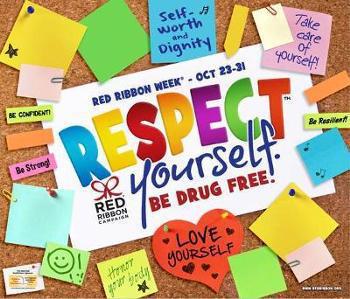
Red Ribbon Week is here! The middle school students started off the week by decorating grocery bags provided by Hanks Foods and Coborns. The bags will be returned and distributed to the community members when shopping. The 5th and 6th-grade students decorated RED RIBBON locker badges for their lockers in honor of Red Ribbon Week. We have teamed up with the elementary school for the kids to partake in a coloring contest. The coloring sheets were designed by Mrs. Kennedy’s advanced Art class. To make the week even a little more festive, the school has been decorated in red and white to provide more awareness of the campaign. Later in the week, students will be placing red ribbons around the antennas of the student and staff vehicles to be a daily reminder to say no to drugs, alcohol, and violence.
For now, take the time and sign the RED RIBBON PLEDGE! www.redribbon.org/pledge/
What is the pledge?
- As parents and citizens, we will talk to our children and the children in our lives about the dangers of drug abuse.
- We will set clear rules for our children about not using drugs.
- We will set a good example for our children by not using illegal drugs or medicine without a prescription.
- We will monitor our children’s behavior and enforce appropriate consequences so that our rules are respected.
- We will encourage family and friends to follow the same guidelines to keep children safe from substance abuse.
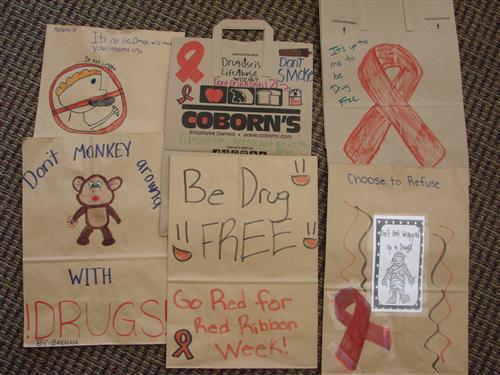
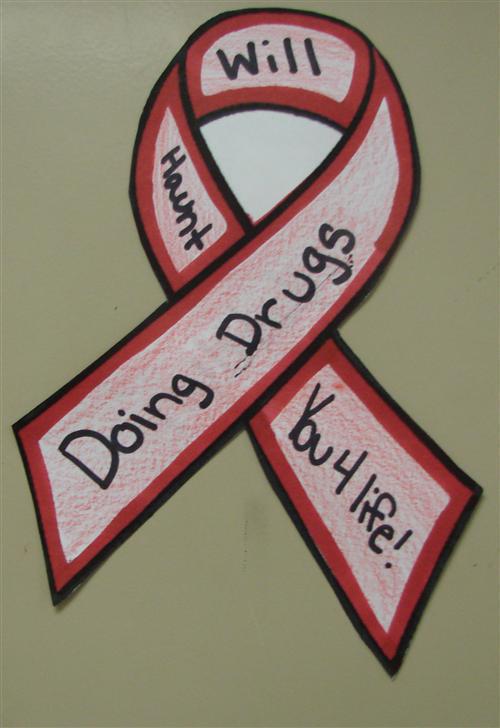

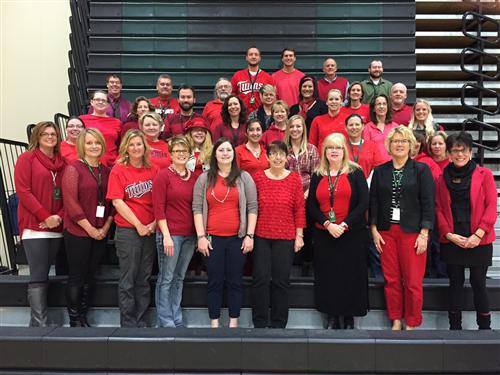
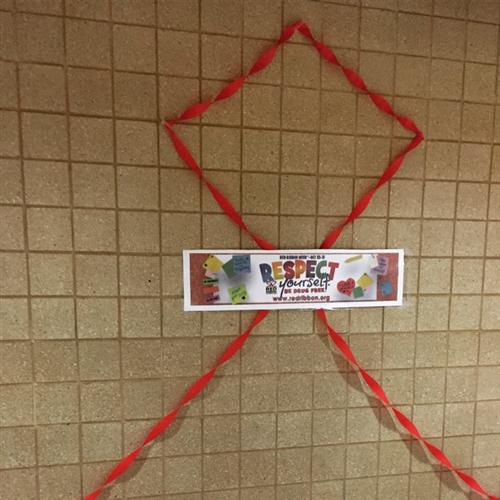
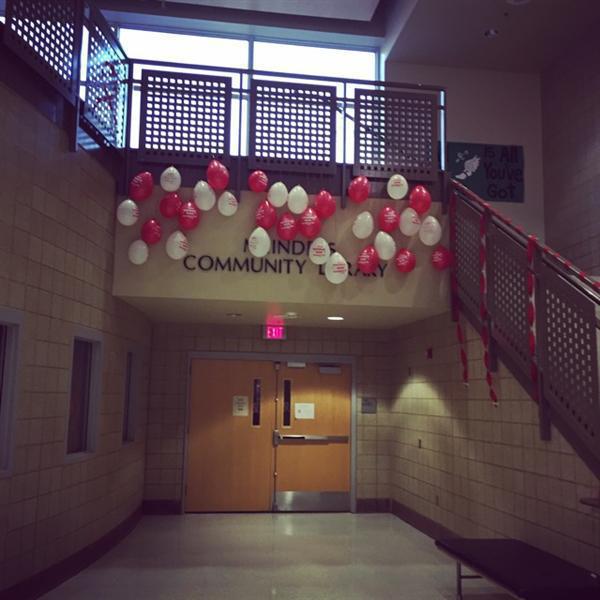
Resources & Hotlines
Reaching out to community resources or making a phone call to a nationwide hotline can be the first step in helping yourself or your child. Listed below are some common community resources & nationwide hotline numbers. Please do not hesitate to use any of the resources listed below. Contact me if you are in need of more information regarding the resources provided.
Local Resources:
Housing/Rental
Southwestern Minnesota Opportunity Council
(Ph): 507-376-4195
Housing and Redevolopment:
(Ph): 507-825-2558
Family Planning/Pregnancy Education
Pipestone County Medical Center
(Ph): 507-825-5811
Southwestern Minnesota Opportunity Council (SMOC)
(Ph): 507-376-4195
Southwest Health and Human Services – Public Health
(Ph): 507-825-5024
Food and Nutrition
Food Shelf
(Ph): 507-825-6720
WIC (Women, Infants, Children)
(Ph): 507-825-5024
Clothing/Other Needs
Volunteers in Mercy
(Ph): 507-215-0155
Counseling/Support Groups
Southwest Crisis Center
(Ph): 507-825-5688
Lutheran Social Services
(Ph): 507-836-8291
Parenting Information
Family Education (ECFE)
(Ph): 507-825-5861
Headstart
(Ph:) 507-825-4347
Pipestone Community Library
(Ph): 507-825-5005
Hotlines:
National Safety Council
(Ph): 800-621-7619
Suicide Hotline
(Ph): 800-992-1716
Child Help National Abuse Hotline
(Ph): 800-442-4453
Youth Crisis Hotline
(Ph): 800-448-4663
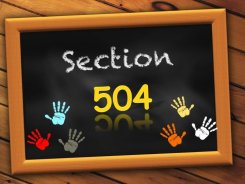
The link provided below is information to connect you to the U.S. Department of Education. This provides parents/families with information about Section 504 and will answer any questions you may have. Mrs. Slaba oversees 504 Plans for students in grades 6 -12. Mrs. Slaba can be reached via email at: kaysee.slaba@pas.k12.mn.us
U.S. Dept. of Education
Another great resource is the PACER Center. They have a flow chart on their website that shows the process of determining if a student is in need of a 504 Plan. Please follow this link to learn more about ways to help your child succeed: PACER Center
Southwest Crisis Center
Mission: Our mission is to end domestic and sexual violence and exploitation of all youth. We seek to empower and support youth in their healing, safety, rights, and autonomy while working to positively change the culture and society that surround youth every day.
- Support Groups/Events: Gather with other youth for encouragement, food, and fun.
- Medical Advocacy: Support during emergency care or a sexual assault exam.
- Criminal Justice: Adcocacey before, during, and after court proceedings with law enforcement and attorneys.
- Civil Legal: Help filling orders for protection or harassment restraining orders.
- Safe Housing: Provide short-term emergency housing for 18-24 year olds.
- Personal Advocacy: Providing emotional support, encouragement, and referrals.
- Safety Planning: Preparing for situations you may find yourself in and safety planning
Outreach
- Healthy vs. unhealthy relationships
- Sexual assault awareness
- Technology and harassment
- Bystander intervention
- Sexual exploration and trafficking
- Media and cultural influences
- Understanding forms of harassment
Training for Adults
- Workshops led by SWCC staff about advocating for your students, prevention of sexual violence, and services for at-risk youth. Contact SWCC for more details.
Call: 800-376-4311
Text: 218-666-teen
Website: www.mnswcc.org
Email: youth@mnswcc.org
TXT4Life Information: Suicide Prevention: Free support at your fingertips 24/7
TXT4Life is a suicide prevention texting lifeline to be used for persons in crisis. You can access a trained counselor free and anonymously via text messaging.
Getting connected to counselors who care and want to help takes just 3 steps:
- Text “MN” to 741 741
- Wait for a trained counselor to respond to your text.
- Respond to the counselor, starting the conversation about what you are concerned about.
TXT4Life hours are 12 p.m.-3 a.m. Central Standard Time. If you text us outside of those hours, they will respond when the text center opens.
Providing Support and Guidance to Your Child
It is important to understand that middle schoolers can challenge and frustrate even the most patient and caring parents, but when parents take a look at all the changes middle schoolers are going through, it’s much easier to understand why they act the way they do. Below are some ways you can help support your child during these challenging years.
Physical
When children go through puberty, they often feel self-conscious and embarrassed by the things their bodies are doing. You can help your child develop a positive self-image by:![]() Reassuring them that the changes they are going through are normal.
Reassuring them that the changes they are going through are normal. ![]() Teaching them about personal hygiene
Teaching them about personal hygiene![]() Helping them choose clothes that are flattering and in style
Helping them choose clothes that are flattering and in style
Emotional
Middle schoolers are often moody. They can be up, down, happy, sad, and confused. These mood changes are NORMAL! Their bodies are going through a lot.

